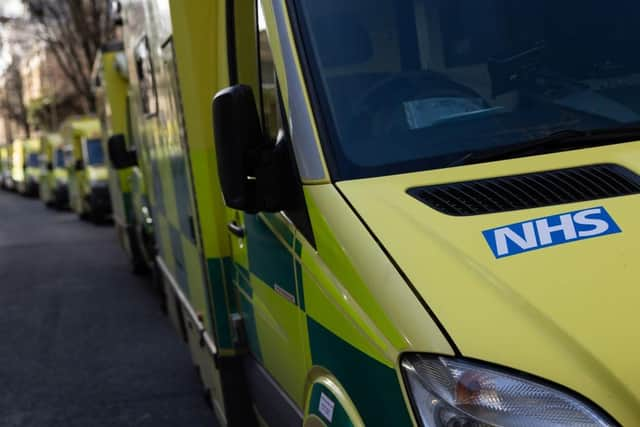More than 750 North East ambulance workers expected to take industrial action in new series of UK strikes
and live on Freeview channel 276
The GMB Union are predicting over 750 ambulance workers across the North East will go on strike at picket lines across the North East to start next week.
The industrial action, which was announced in January, is the second of four days which will see staff walk out over a proposed 4% wage increase. Further strikes have been announced for Monday, March 6 and Monday, March 20.
Advertisement
Hide AdAdvertisement
Hide AdThe first action of this run of strikes took place on Monday, February 6.


Picket lines will be set up across the North East with workers gathering at sites in Bishop Auckland, Gateshead, Middlesbrough, Consett, Hartlepool, Sunderland, North Shields, Hebburn and Alnwick.
The 24 hour strike will come into place at 6:01am on the morning of Monday, February 20 and run until 5:59am the following day.
Why are ambulance workers striking?
When announcing the strikes, GMB Union National Secretary Rachel Harrison said: “GMB’s ambulance workers are angry. In their own words ‘they are done’.
Advertisement
Hide AdAdvertisement
Hide Ad“Ministers have made things worse by demonising the ambulance workers who provided life and limb cover on strike days - playing political games with their scaremongering.
“The only way to solve this dispute is a proper pay offer."
How do ambulance strikes work?
Some union members may be exempted from participating in industrial action if they are “derogated to work” because their role or service is important to the safety of the public. Local arrangements will be in place to determine which emergency and urgent care situations will be prioritised.
